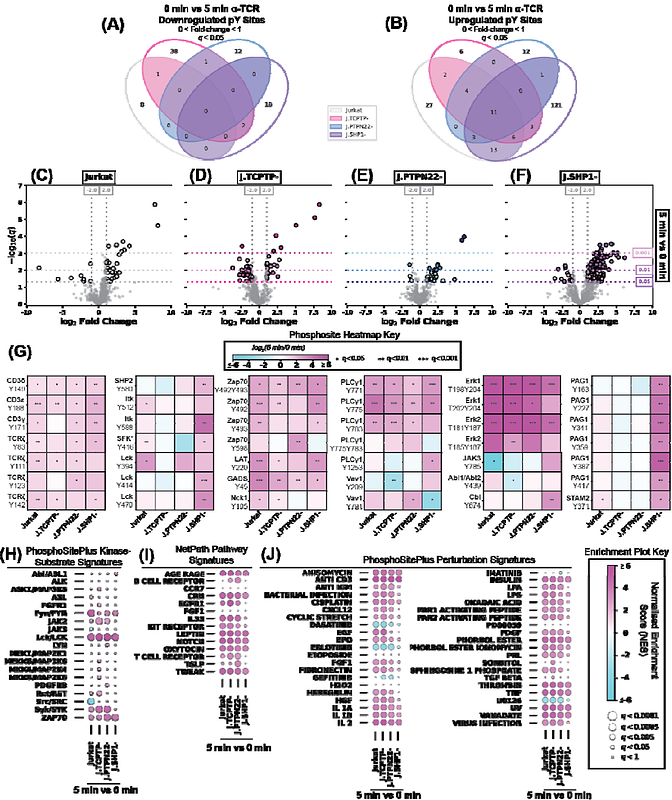The phosphatases TCPTP, PTPN22, and SHP1 play unique roles in T cell phosphotyrosine maintenance and feedback regulation of the TCR

The phosphatases TCPTP, PTPN22, and SHP1 play unique roles in T cell phosphotyrosine maintenance and feedback regulation of the TCR
Callahan, A.; Mojumdar, A.; Hu, M.; Wang, A.; Griffith, A.; Huang, N.; Chua, X. Y.; Mroz, N. M.; Puterbaugh, R. Z.; Reilly, S. P.; Salomon, A. R.
AbstractThe protein tyrosine phosphatases (PTPs) TCPTP, PTPN22, and SHP1 are critical regulators of the activating phosphotyrosine (pY) site on the initiating T cell kinase, LckY394. Still, the broader implications of these phosphatases in T cell receptor (TCR) signalling and T cell biology remain unclear. By combining CRISPR/Cas9 gene editing and mass spectrometry, we evaluate the protein- and pY-level effects of TCPTP, PTPN22, and SHP1 in the Jurkat T cell model system. We find that deletion of each phosphatase corresponds to unique changes in the proteome of T cells, with few large-scale changes to TCR signalling proteins. Notably, PTPN22 and SHP1 deletions have opposing effects on pY abundance globally, while TCPTP deletion modestly elevates pY levels. Finally, we show that TCPTP is indirectly involved in Erk1/2 positive feedback to the TCR. Overall, our work provides evidence for alternative functions of three T cell phosphatases long thought to be redundant.